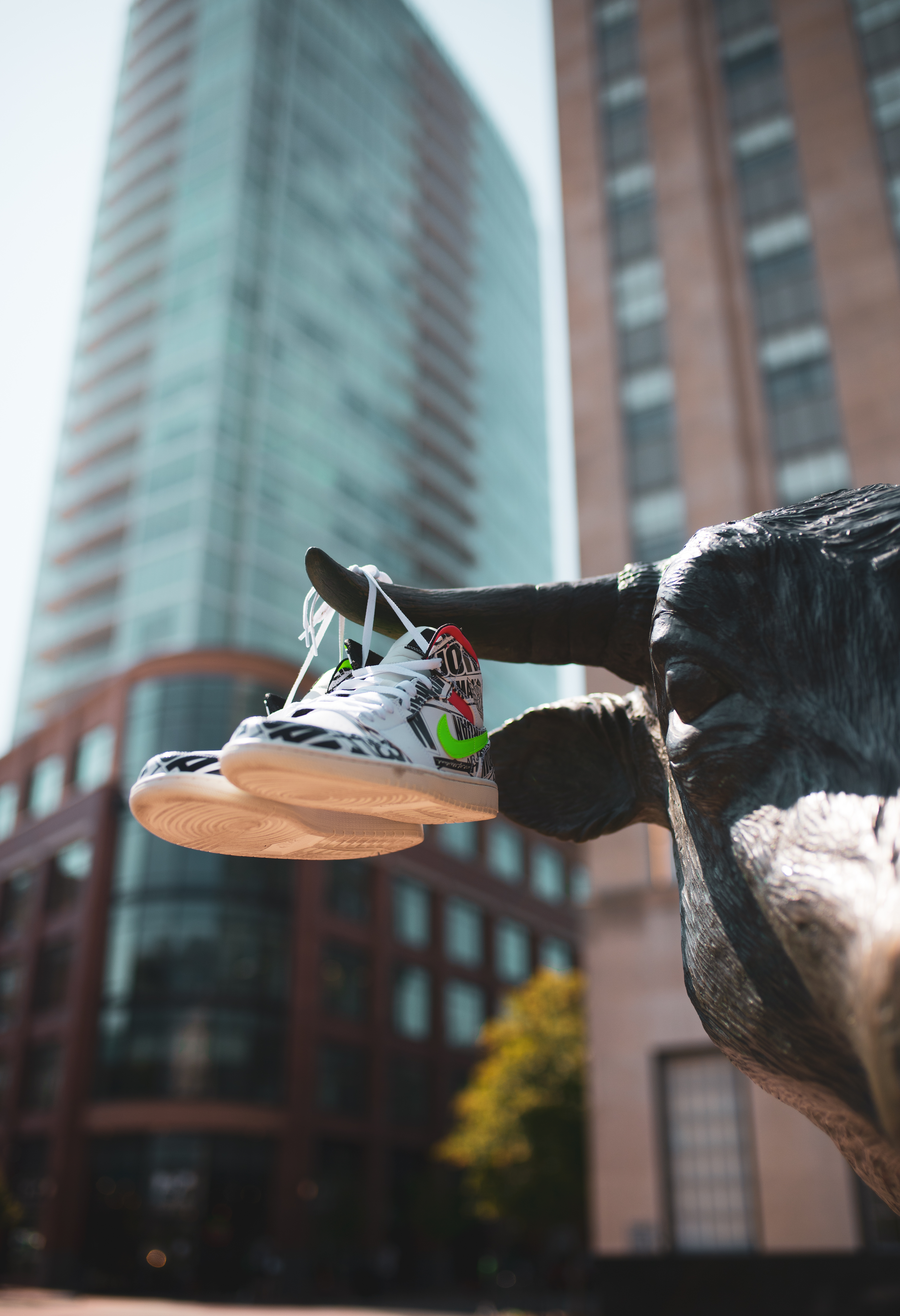NC State Professors Discuss the Cultural Impact of Sneakerheads

Kevin Moye | Managing Editor
Dr. Delisia Matthews, assistant professor of Fashion and Textile Management in the Wilson College of Textiles, and Dr. Qiana Cryer-Coupet, an assistant professor of Social Work in the College of Humanities and Social Sciences joined students at Witherspoon to present their research on the fashion community known as “sneakerheads.”
The research project brought both of their disciplines together on the subject with Matthews focusing on the consumer trends of sneakerheads and Cryer-Coupet discussing the racial and familial dynamics of sneakerheads.
What Matthews and Cryer-Coupet discovered was that being a sneakerhead went far deeper than just having a material appreciation for shoes. For most, the material appreciation of sneakers was just the surface of their fandom. In the interviews they conducted, the researchers found that sneakers could act as a vehicle for parenting, historical appreciation and pieces of expression.
Matthews discussed the consumer themes that were most apparent among the sneakerheads they interviewed. She pointed to themes of nostalgia for historically significant shoes, a love for Jordans, and the sense of belonging that comes with being a part of the sneakerhead community as driving factors in consumer behavior.
Cryer-Coupet’s portion of the presentation portrayed the importance of sneakers in the Black community. The interviews she and Matthews conducted contained a common theme of Black fathers using sneakers as a method for parenting their children.
“Three things emerged from this,” Cryer-Coupet said. “The first being this sense of belonging and connection. The next would be this idea of freedom of expression. Being able to select what you want your style to be and passing that message on to sons and daughters was very important for the fathers in our study. Lastly, the thing that came through pretty strongly was this idea of entrepreneurship. Utilizing the ability to buy, sell, and trade, to gain intergenerational wealth.”
The research presentation was followed by a panel discussion led by self-proclaimed sneakerheads. The eclectic panel consisted of the owners of the local Raleigh sneaker shop Capital BST, a fashion marketer, a Cantu brand ambassador, a lifelong sneakerhead academic, and the Grammy-winning producer 9th Wonder.
9th Wonder highlighted the heterodox nature of sneaker collection during the panel discussion.
“One of the things we can collect is sneakers,” said 9th Wonder. “It’s just like a mom and dad that collects baseball cards and passes them down to their son or daughter. For me, it’s not just the actual sneaker or just wearing it — it’s the idea of collecting something and having it be a part of history.”
Given his illustrious career in the music industry, 9th Wonder was also able to speak directly on the intersection of hip-hop and the sneakerhead community.
“It goes past the sneakers,” he said. “Hip-hop is basically like the past 40 years of fashion. I don’t think that fashion would survive without hip-hop at all. Hip-hop is arguably the most daring art form on the face of the Earth. It is straight without premise. The Clyde, the Stan Smith, the Air Jordan — that is 100 percent a hip-hop creation.”
With two female panelists on the stage, the event also showcased the gender-neutral appeal of sneakers. Melissa Cantey, a professional blogger and Cantu Brand Ambassador, discussed the long journey that women underwent to become members of the sneakerhead community. She spoke not only on the importance of women being added to the community, but on ways for women to maintain and build on their status as sneakerheads.
“I think it’s been a long time coming for us, but we’re here now and we have a voice,” Cantey said. “It was male-dominated for a long time and now we’re here and taking strides and putting ourselves out there. We’re letting the younger generation know that they can collect sneakers too. They don’t have to be tomboys — we can wear sneakers with dresses, with skirts, with suits. It can be our thing too.”
- Categories: